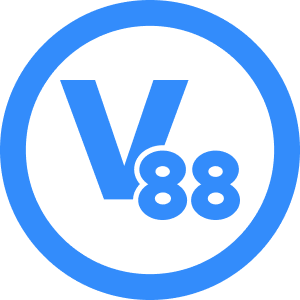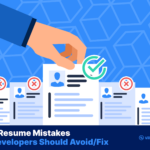Interviews are an essential part of the recruitment process. It is an opportunity to get to know the candidate, their skills, experiences, character, and personality; a chance for both recruiters and candidates to determine whether the individual meets the requirements and fits the company culture. When recruiters invite candidates for an interview, it indicates interest in bringing a candidate on board.
Interviews are strategic and highly focused professional conversations with a purpose. Preparing for and attending interviews can take some time and technical interviews take longer.
Technical interviews are different from the usual job interviews that aren’t tech-related. It’s a specialized interview that aims to gauge a candidate’s programming skills through various challenges. Technical interviews can be intimidating, especially if it’s your first one. So we prepared this article to help newbies and not-so-newbies prepare for their next technical interview. In this article, you will learn how technical interviews are usually done, what to wear, and what to bring, and pick up some preparation tips to help.
What is a Technical Interview
First, we must understand what a technical interview is. As mentioned before, technical interviews aren’t like any other interview. They involve more than a typical question-and-answer interview. Technical interviews involve challenges and assignments, more like a pre-qualification screening or pre-employment assessment.
Interviewers don’t just ask questions for talents to answer with words; they would require candidates to show them. Most technical interviews involve whiteboard coding and coding assignments to see how tech talents tackle real-world problems you will encounter in the workplace.
What to Expect
Every company has a different technical interview process, but most interviewers ask behavioral, situational, education-related, and technical knowledge types of questions.
Often, technical interviews come in three basic stages: Phone interviews, Coding challenges, and On-site Interviews.
Phone Call Interview or Video Call Interview
If the company likes a talent’s resume, they invite them for an interview via phone or video call. Interviewers ask questions to see if candidates are qualified for the position and enthusiastic about the probability of getting hired. The interviewer usually asks questions related to the resume candidates submitted and your reasons for choosing to apply to their company. This short interview is designed to determine if you fit their requirements and a company culture based on your answers. The interview typically lasts for 15 to 30 minutes.
What to Wear
If your interview is done via phone call, you can just wear whatever you want, but it becomes another matter if it’s a video call interview on Zoom, Skype, or Google Meet. Although most tech companies have a relaxed and casual work environment, it’s still wise to dress smartly. Unless instructed to follow a certain dress code by the interviewer, the general rule is to dress one level above the company’s dress code. If the company allows its employees to wear jeans and t-shirts, candidates should wear business casual attire.
What to Bring
Aside from a digital or printed copy of your resume, you don’t really need to bring anything special during this stage, but a notepad and pen won’t hurt.
Question You May Encounter
Behavioral: Questions like this aims to know how you acted or responded to specific situations you’ve encountered in real life. It may include:
- Tell me about your most challenging project.
- Tell me about a time when you had a disagreement with a coworker or client.
- Tell me what a productive day at work looks like to you.
Situational: This type of question would probe into how a candidate would react to real-life scenarios. Questions you may encounter:
- What would you do if your coworker failed to complete their part of the project on time?
- What will tell a coworker whose codes are full of potential issues?
- How would you deal with a difficult coworker or client?
Education: Interviewers will ask questions specific to your education and certifications. They will ask if you finished IT-related courses, when, and where you went to college. If you attended coding bootcamps, they will ask when and which coding bootcamp you attended. If you happen to be self-taught, they may ask how you taught yourself, how long it took you to learn, and where you got your resources.
Technical Knowledge: Assessing your knowledge and real skills through technical interview questions is the heart of technical interviews. They may ask:
- What is SAN, and how is it used?
- When do you think it is appropriate to denormalize database design?
- What coding tools do you usually use?
How to Stand Out
Even phone interviews can be nerve-wracking. Here are some tips to help you prepare:
- Research the company you’re applying for.
- Prepare answers to possible questions about the details in your resume.
- Be excited about the company and the interview. Show enthusiasm about the probability of becoming part of the team.
- Level with your interviewer. If the interviewer has no programming background, don’t get too technical, but if your interviewer is a software engineer, show off your technical knowledge without being boastful about it.
- Be honest. You don’t have to know all the right answers. Don’t fake an answer just to give one.
- Show, don’t tell. When asked about situations involving other people, don’t paint them to be bad people and you the good one. Tell your story without demeaning anyone.
Remote Coding Challenge
Candidates who pass the first stage are invited to accept a remote coding challenge. Remote coding challenges are done via Zoom or Skype or can be a homework-type challenge. Interviewers will likely give you a challenge related to the position you are applying for. So, if you’re applying to be a front-end developer, you might be tasked with coding a landing page for the company to test your ability to build a user interface. This remote coding challenge can take a few hours.
What to Wear
The same with phone interviews; dress smartly unless instructed otherwise. You are free to wear whatever you like, especially if it’s a homework-type of remote coding challenge.
What to Bring
If your remote coding challenge is supervised via Zoom, make sure your laptop or desktop is in tip-top condition. You also might want to prepare a notepad and pen beside you to take notes.
Question You May Encounter
Since it’s remote, the interviewer might probe into what you did during the follow-up interview if it’s a homework-type; if it’s real-time coding, they will ask what you’re doing. They might ask you to explain why you chose to use a specific function.
How to Stand Out
It can still be nail-biting even if you’re doing it remotely. Follow these tips, and you’re good to go.
- Keep calm and devise a plan. Your interviewer will observe even your littlest habits to see if you fit their culture and the position.
- Think of the real-time coding challenge as if you’re talking to a teammate. Make it a collaborative effort.
- Go beyond what is expected of you; if they ask you to code a landing page based on a specified design, share respectful suggestions.
Interviewers will check your coding skills, whether you test your codes or not as you write, and gauge your problem-solving skills and collaboration skills.
Onsite Interview with Whiteboard Coding Challenge
If the company liked your remote coding challenge performance, they would invite you for an onsite interview, also known as the actual technical interview. The third and final stage involves an in-person or onsite interview with another coding challenge you have to do on a whiteboard in front of the interviewer(s). This could also be done remotely if the company prefers it.
Aside from behavioral questions, you will be asked technical questions where you can explain and solve some situational types of inquiries. Also, you could be asked to present your remote coding output.
The onsite interview with whiteboard coding could last one hour to a full day.
What to Wear
The same with phone interviews; unless instructed, dress one level above the company’s dress code.
What to Bring
You can bring your laptop with you, but you’ll most likely spend your onsite interview in front of the whiteboard, writing codes for everyone to see. On that note, be extra prepared; bring additional whiteboard markers.
Question You May Encounter
The interviewer will ask you to explain your codes, similar to the real-time remote coding challenge. If they have clarifications about your remote coding challenge output, they will try to understand your reasons for doing it the way you did.
How to Stand Out
It’s the most intimidating part of the interview process. Here are some tips to help you prepare:
- Don’t panic! Your interviewers won’t appreciate it if you do.
- Before you start coding, ask for clarifications, and make sure you understand what is being asked.
- Think aloud when coding on the board, and walk your interviewers through your thought process. Give them a window into your thoughts; think of it as another collaborative effort, just like you’ll do it with a team.
- Speak clearly, don’t mumble your words. Use the proper or formal names of concepts.
- After completing your codes, check for errors and explain your solutions. If you have another idea or way of doing it, mention that as well.
Your interviewers will be observing your coding skills, problem-solving ability, creativity, communication skills, analytical thinking, how you handle feedback, and cultural fit.
Additional Tips
- Make sure you understand the role you’re applying for.
Study the basic requirements the position requires. Reviewing the job description to know what you need to study further prepares you for the interview and the role.
2. Study helpful books and other resources.
With a fresher understanding of what the role entails and what you need to work on, selecting the right resources will help you be more successful.
3. Practice for the interview.
Technical interviews are focused on the practical elements where you show what you can do. Practice practical tasks that will likely be included in the interview, like creating logical equation strings that would make sense for the role. If you’re applying for a position involving UI/UX designing, practice designing something related to the company from scratch or try looking for UI error examples and suggestions on how to improve.
Practicing how to answer professional and technical questions is an excellent preparation to fight the nerves and put you in an ideal position to answer any relevant questions.
4. Make sure the hardware and software you’ll be using are in tip-top condition before the interview.
Nothing is more important than making sure the interview goes smoothly. Whether it be a supervised Zoom coding session or an in-person interview, making sure your laptop and other software you will be using are working correctly keeps you out of awkward situations that would paint you as unprepared and unprofessional.
5. Be a conversationalist. Ask questions.
Most tech development positions are interactive and collaborative. Practice your communication skills by talking through your work process. You can also practice bringing up questions and clarifications that you will likely ask during and after the interviews.
6. Take your time.
As the old saying goes, don’t rush the process, good things take time. Whether coding a homework-type challenge or an onsite whiteboard challenge, take your time to solve the problem and check thoroughly for errors. The more you rush, the more the work becomes stressful.
7. Enjoy!
There will always be two results in every interview, you get hired, or you get rejected. No matter the possible outcome, make sure you enjoy the process and have fun!
Now that we’ve cleared how technical interviews go and share some tips to help you stand out, you are ready and equipped to ace your next technical interview.
If you want to develop your programming skills further, you can join Village 88’s Free Online Training. We offer free training for fresh graduates and non-graduates with coding backgrounds. This training is absolutely free, without hidden charges or future salary deductions when you land a job. No cost, no fee, just free.
Learn more about our free online training, visit our Facebook page, or check out our website to register. Together, we can achieve your programming goals! We’d love for you to join us.





